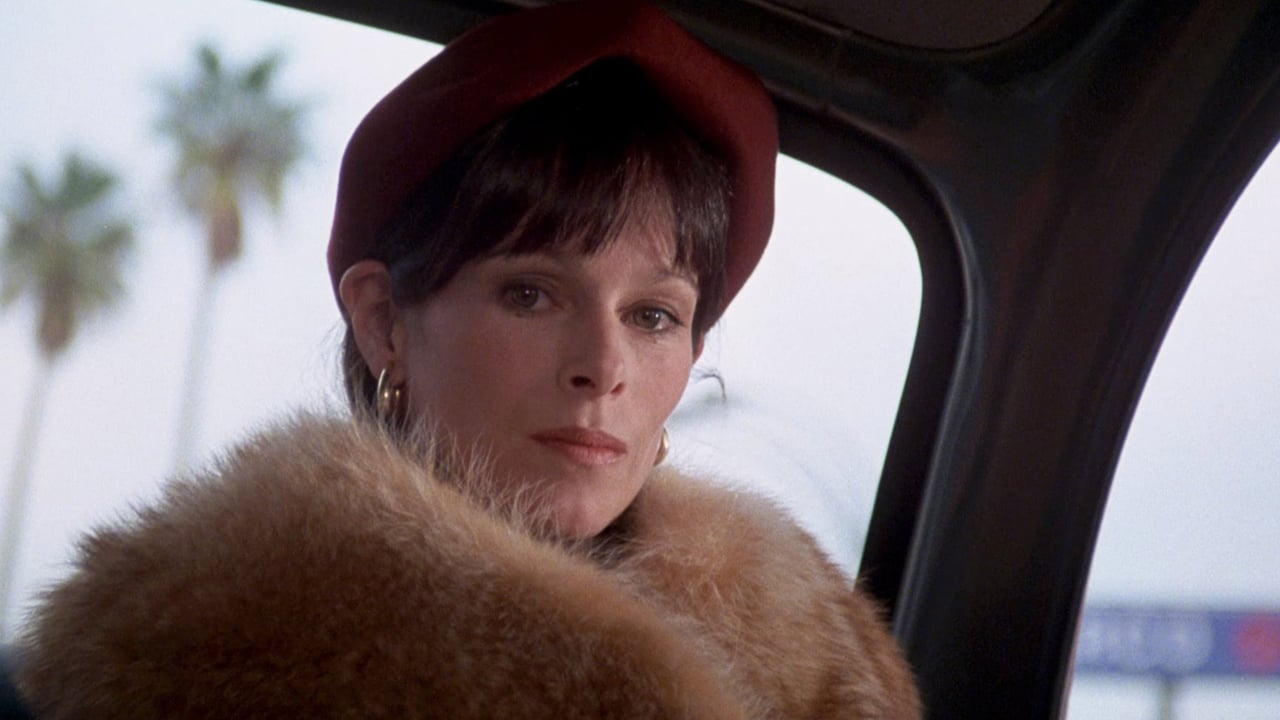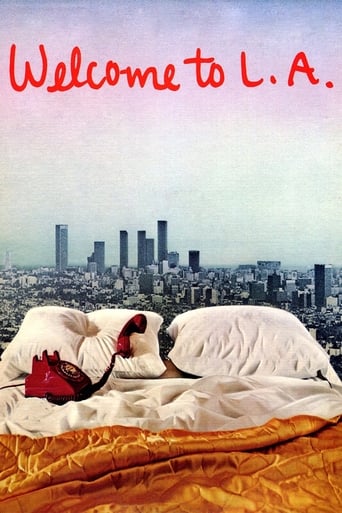

This film is so Altmanesque that you might as well watch a Robert Altman film. The inherent problem with mimicking a genius's style is that you'll never be as good as he was. I get that Rudolph is Altman's "protege" and Altman was even a producer on this film, but for the life of me I can't fathom why Altman just didn't direct the film himself...maybe he was busy working on other projects, but if so why water down your artistic legacy with mediocrity. The most egregious problem with this film is the miscasting of Denver Pyle; he might have been good in smaller roles as a hayseed but he simply isn't believable as an executive, and lacks the depth to accurately portray a man who has become distant from his own son. Every line he delivers is flat; he must have known he was struggling in the role, he looks uncomfortable. On the other hand, most of the other actors are terrific: Lauren Hutton, Keith Carridine, Geraldine Chaplin, Harvey Keitel, and Sissy Spacek, all in interwoven Altmanesque stories. My main problem with the film is that it feels very claustrophobic; where Altman tells the big, grand story and dips into the characters every once in a while, Rudolph focuses on the relationships among these vapid people, complete with closeups intended to convey contemplation, wounded pride, happiness, or any other emotion these superficial characters experience. We never really get to know any of them, they appear as strangers at the start of the film and by the end they leave as strangers, which might have been the point that Rudolph was making, but the presentation of this idea isn't sophisticated enough to drive the point home. If it were any good, the music might have redeemed the film, but none of the songs are particularly catchy or memorable, though they are sophisticated. Before last night I had never heard of this film but I'm glad I watched it so I could reminisce about the 70s when cell phones were science fiction and wicker furniture and spider plants were everywhere.
... View MoreThis film, Alan Rudolph's first and BEST (along with Choose Me 7 years later) had gotten a bum rap. Some people hate the music of Richard Baskin or think the variety of characters are a pretentious and boring lot. I think just the opposite! Harvey Keitel was never more amusing and pathetic. Sissy Spacek is a doll (in probably her easiest role) and brighter than some would think. Geraldine Chaplin is finally put to good use. Keith Carradine seemed to relax more after his Nashville experience and is very subtle. Sally Kellerman at her most beautiful and hungry. Viveca Lindfors creates a memorable "older" woman and John Considine is hilarious. Denver Pyle supplies stability.After a while the music grows on you, when you finally actually hear what he's saying. Needless to say, I'm a big Altman fan, and once in a while Rudolph hits the mark as well. A 9 out of 10. Best performance = Sally Kellerman. Worth a visit as L.A. is explored and exposed in a new light!
... View MoreThis is a bad movie. It wouldn't be worth saying so, except that Alan Rudolph is capable of making moderately entertaining movies (The Moderns, Mrs. Parker, Equinox), and even one very good movie (Choose Me). For a movie about people to work, the characters must either be nice or interesting--an ordinary person may charm us, and even a villain may fascinate us. But this movie has about a dozen characters, none of whom give us any reason either to like them or hate them or be interested in them. A few are given artificial eccentricities, but we can see through the false effort. They wander aimlessly through random meaningless sexual couplings in suburban Los Angeles, accompanied by an unremittingly dreary soundtrack. This is a one-note movie, in which the one note is a sour one.
... View MoreYou can't help but compare it to the other big L.A. Statement Movies--Altman's SHORT CUTS, and P.T. Anderson's MAGNOLIA. I like Rudolph's way better than either of those: it's gentler, humbler, more observant, truer. Limiting himself to a dozen or so L.A. habitues, Rudolph starts with one funny, correct move: no movie people. The dances of disconnection, attempted connection, failed connection, and--stunning!--connection accomplished are as tender and as finely, thinly observed as Rudolph has ever pulled off. So many beautiful moments here: the best comes when Keith Carradine, as a dupe of his sleepy-stud character from NASHVILLE, breaks up a romance to go on a healing mission with a half-crazy housewife (Geraldine Chaplin). When his philandering with her rescues her marriage during a tense phone call in his apartment, Carradine's face spreads with gladness and relief. The rightness and the unexpectedness of the moment is fantastic. Even more than the goofy, enjoyably romantic CHOOSE ME, this is the one where Rudolph got it all right. And no other movie captures L.A.'s peculiar loneliness like this one: he doesn't hype anything or play to the tourist mentality--something that could not always be said for his mentor, and the movie's producer, Robert Altman.
... View More